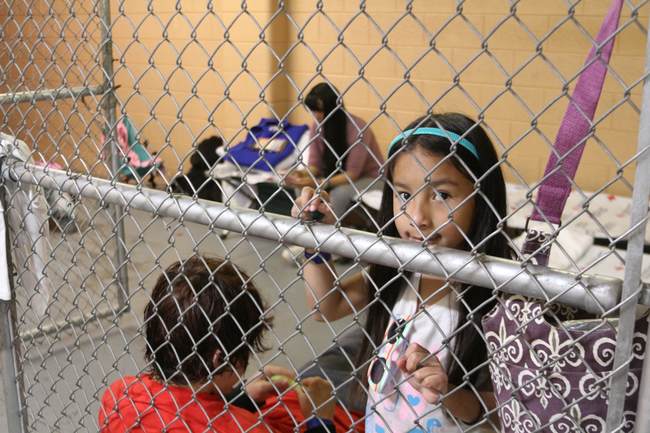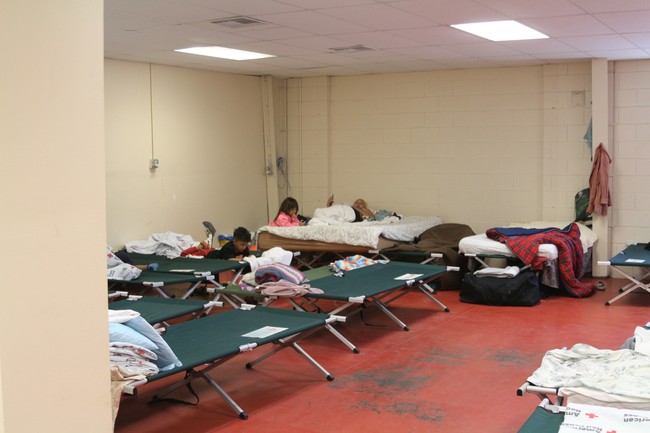EL PASO, Texas — "There's alway been migrants here, just never at this volume," Nicole Reulet, Rescue Mission of El Paso's (RMEP) marketing director, told me as we walked across the street from the organization's main building to the lot they recently acquired after the surge of illegal crossings that hit the city late last year.
Reulet recalled when there was a spike in illegal crossings last December, they had to put people in their main building wherever there was space, including conference rooms and the kitchen.
One of the buildings on the lot is designated for families with young children, the other is for single adult males and females. RMEP's capacity for processed and released migrants at their new lot is 225. They are almost at capacity even before Title 42 is officially no longer enforced starting on May 11.
RMEP houses the processed and released individuals anywhere from three days to two weeks. They help coordinate travel for people to reach their final destination. Funding for their program comes from grants provided by the Federal Emergency Management Agency, but RMEP has run into funding issues due to the never-ending stream of people being released by Border Patrol and it takes time for reimbursements to come through. RMEP provides around 600 meals a day.
Walking into the building that houses the family units, cots fill the large and smaller rooms. Some are stacked sideways during the day to allow for more space to be able to walk with ease. Children run around or are being tended to by their mom. Most of the men are gone, having went into town to look for work or work at a job they managed to find before they leave the city.
Recommended
"For us, it's just been, where are we going to put these people? For us, we have the capacity of about 225. We haven't reached that capacity just yet but I'm sure by the end of the week we'll be there. But that's 225 when thousands are released a day, so it's just a drop in the bucket," Reulet explained. "So our biggest concern is just making that sure there's no kids on the street."
Townhall Media/Julio Rosas
Reulet said the migrants have told staff getting through Mexico is the hardest part of the journey, even going through the infamous Darien Gap is not as bad compared to having to deal with the dangers of going through Mexico. Reulet estimated at least 80 percent of the women they take care of have been raped or sexually assaulted in some way, often times in front of their children.
"Most of the women that come to us when they first get here ask for a pregnancy test," said Reulet, adding it takes children who had seen horrible things three or four days to come out of the shock and start acting like a normal kid again.
Townhall Media/Julio Rosas
"It's definitely a crisis. I think we had the opportunity to be very proactive because after [President] Biden's visit, the numbers drop signficantly, dropped a lot," Reulet said, noting the federal government should have been better prepared in the time of the relative lull with the knowledge Title 42 was ending this month.
"The biggest thing is there is no space for them. The shelters are full."




